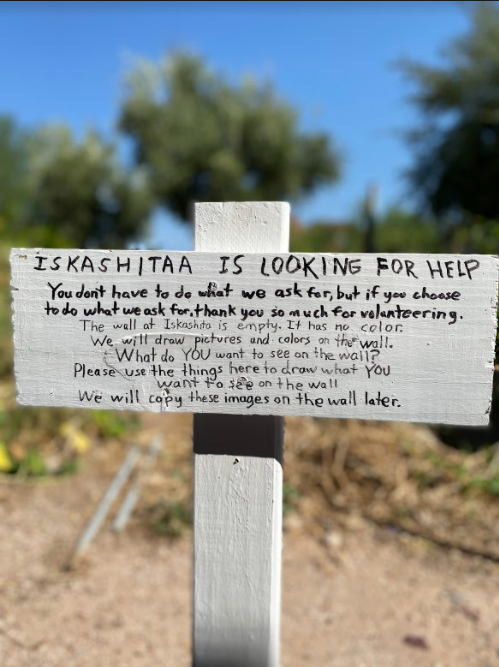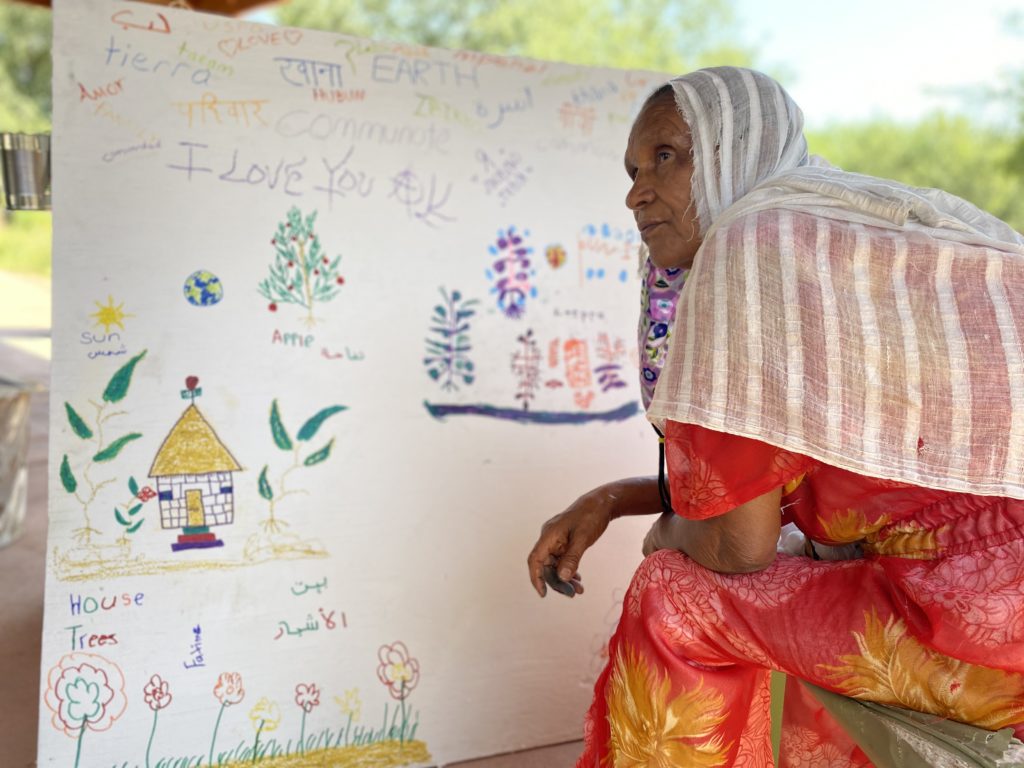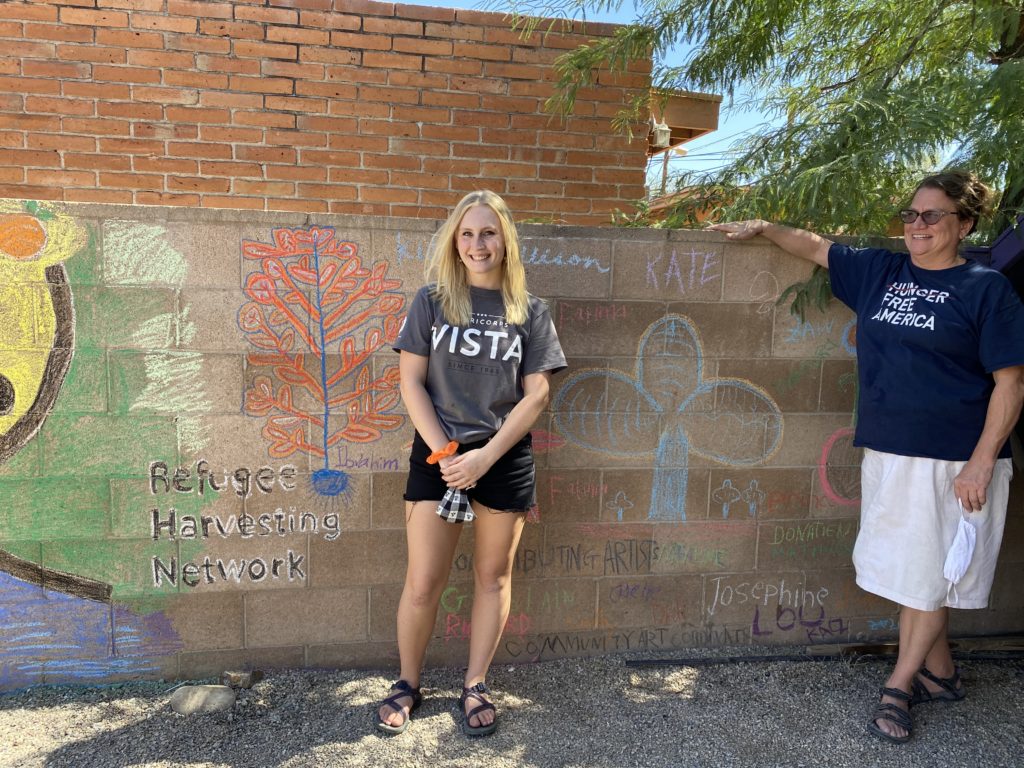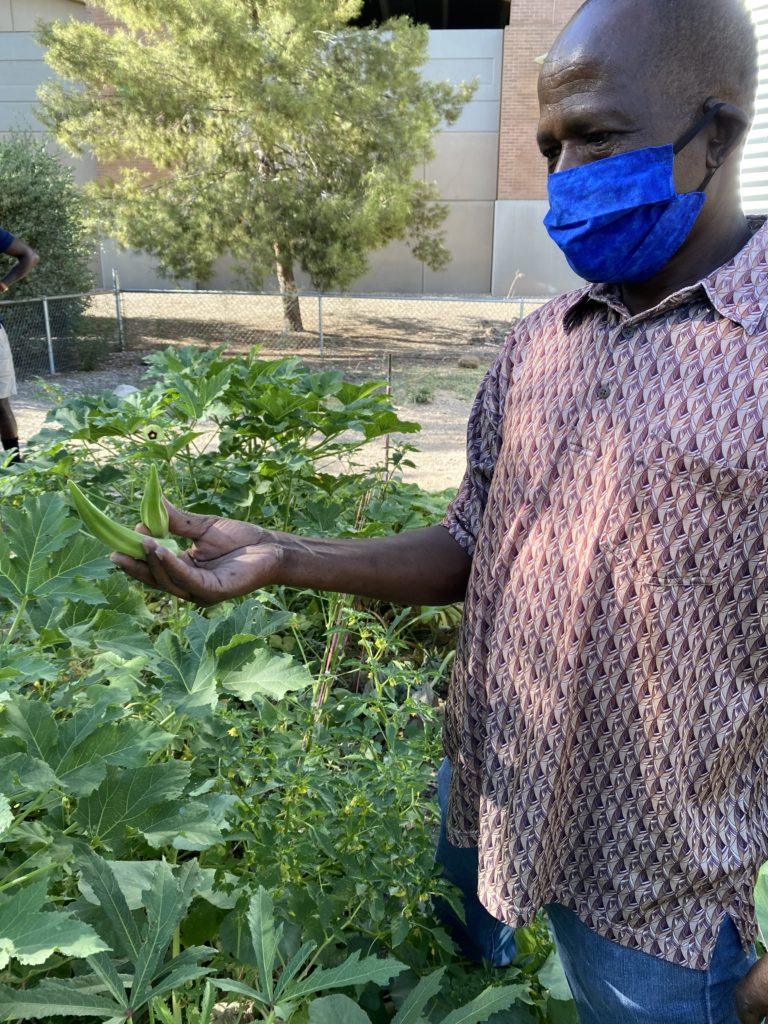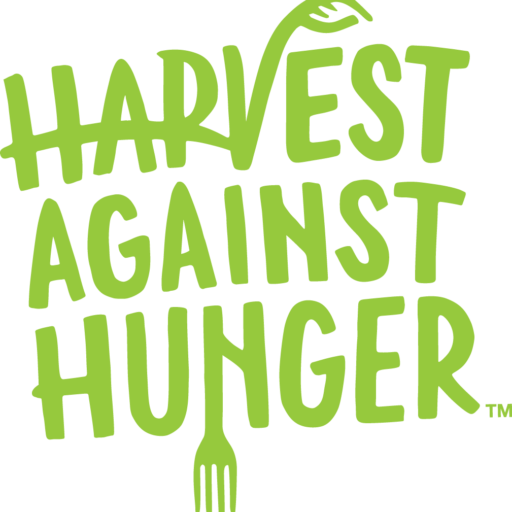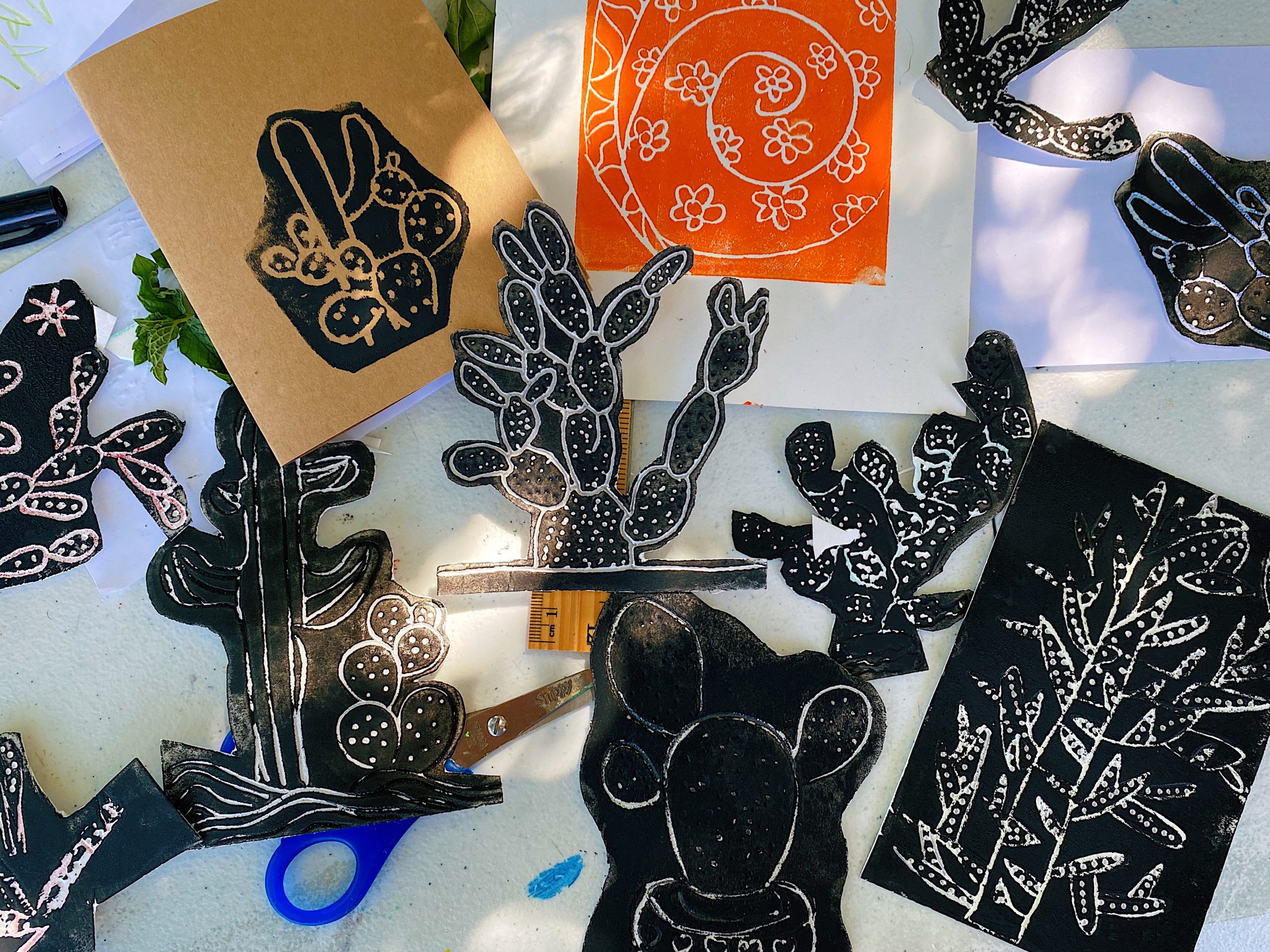
Refugee Garden Art Program, RGAP: Filling in the Gaps
09 Dec 2020, by Admin in Iskashitaa Refugee NetworkKate Crooks currently serves as the Harvest VISTA member at Iskashitaa Refugee Network in Tucson, Arizona. Through their strategic food-based programming, IRN integrates United Nations refugees into the Tucson community with harvests, culinary workshops, and other volunteering events which provide opportunities to practice English, learn about the city of Tucson, and strengthen their community network.
2020 brought many surprises to Iskashitaa Refugee Network (IRN), the only year-round gleaning organization in Southern Arizona. The most pleasant one being the enthusiasm and receptiveness to their programming at the University of Arizona community garden. IRN has had plots at this garden in the past, but this year was the first where there was such an overwhelming positive response from volunteers and refugees. This is mainly attributed to the new approach to the programming at the garden being 50:50 gardening and art projects.
Back in June, Iskashitaaa Refugee Network was still in the planning and drafting phase of their community art project. Because the community art project was a brand new endeavor, the project progressed slowly, but surely. Every Wednesday, Iskashitaa hosted weekly gardening experiences at the University of Arizona community garden. While gardening was occurring, volunteers and refugees would simultaneously draft, doodle, and sketch on the composition boards their answers to the prompt, “what does community mean to you?”
This question elicited a variety of images for weeks: flowers, flags, food, landscapes, and scenes of family and friends spending time together. After all boards had collected their unique compositions, the leader of the Arizona Serve Public Art team, Louis Kaczmarzyk, facilitated an arrangement activity on the Wednesday prior to the final step in creating the composition. On September 23rd, all gardeners in attendance arranged cut-out replicas of the original composition board drawings in the manner that they wanted them to appear in the final mural. The following week, the Arizona Serve Public Art team projected the arrangement onto the wall where the final mural would be displayed. This outline on the wall was completely inspired and arranged by the refugees and volunteers from this long process.
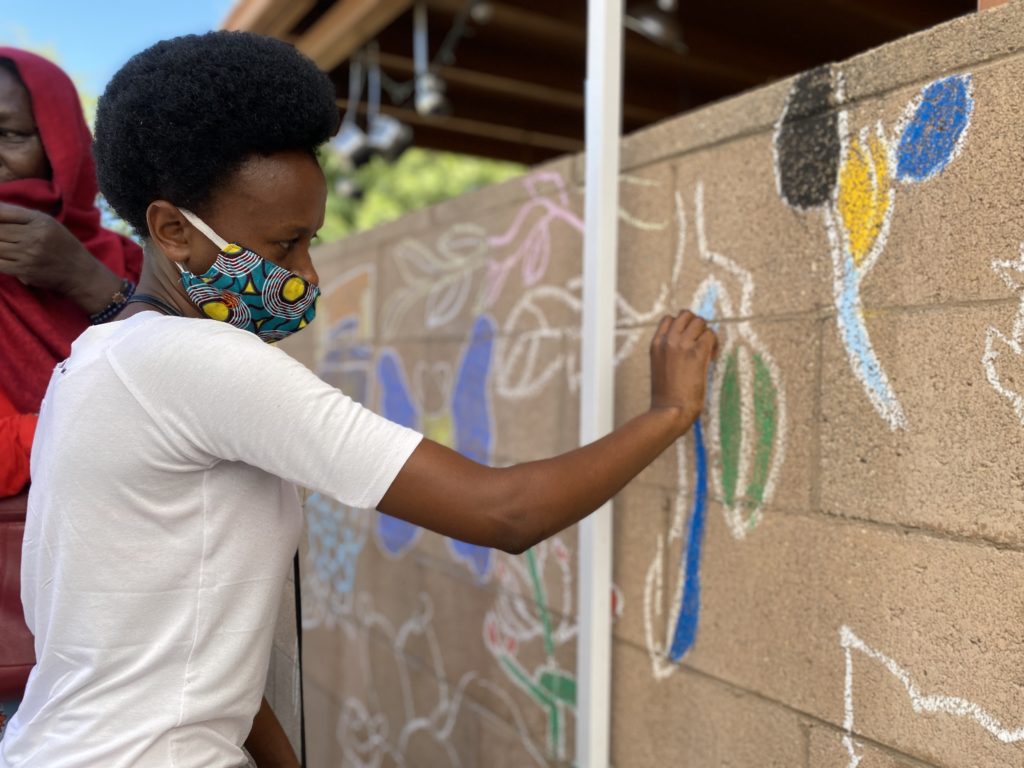
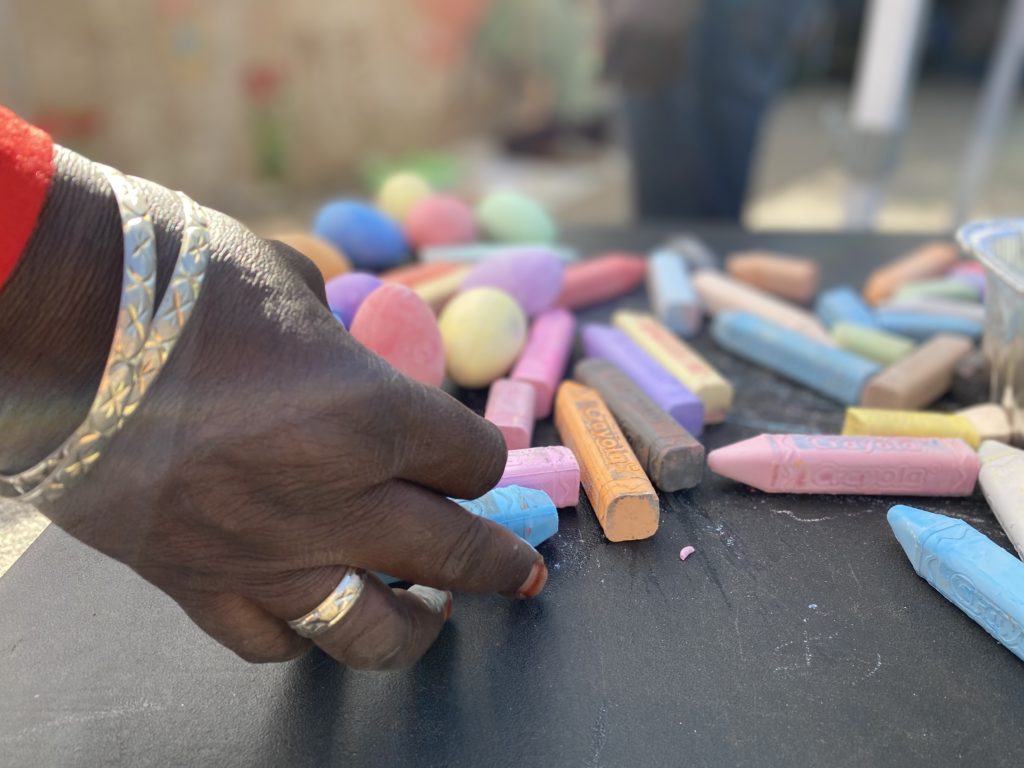
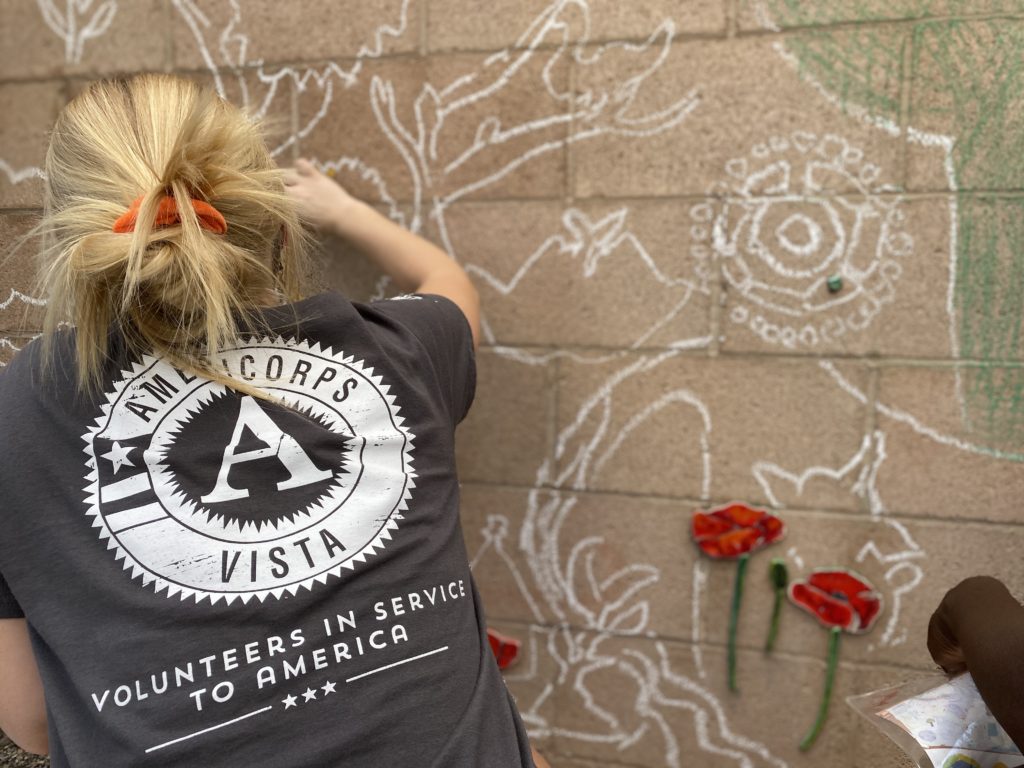
The last step left after tracing the design onto the wall was coloring it, which no different than the whole process, was done by the refugees and volunteers with complete creative freedom to choose, blend, outline, and shade in anyway they saw fit. On September 30th, 15 refugees and 7 volunteers completed the mural which is on display outside at the Iskashitaa office.
More than just a beautiful mural came out of this project. Towards the end of the mural process, a potential new volunteer and owner of Art Naturally, Gretchen Crossley, presented her interest in volunteering with Iskashitaa and wanted to incorporate her artistic talents as well. Harvest VISTA, Kate Crooks, knew that this new volunteer’s talents would fit with the art and gardening which already was happening on Wednesday’s perfectly. Not only did Gretchen and her art projects fit with Iskashitaa’s programming, they expanded and sustained them! Now, the mural has been completed for 2 months but art at the garden has continued every Wednesday thanks to the creative passion and dedication of volunteer art teacher, Gretchen Crossley. Every Wednesday Gretchen brings all the supplies necessary and facilitates a nature-based art lesson that supplements the garden activities for the week completely free of charge. This weekly activity has been a tremendous success in further integrating refugees into the Tucson community by educating the community about a variety of cultural practices, languages, and edible landscapes while also intentionally providing a space for volunteers and refugees to exercise their social, creative, and mental wellness.
Despite the unprecedented difficulties Iskashitaa faced this year between covid-19 and a record-breaking hot summer, the respite found in the creation of art has supported all of Iskashitaa volunteers, refugees, and staff.
